When most people hear “Argan oil,” they think of beauty products and silky hair serums. But in Morocco, Argan oil is far more than a cosmetic trend, it's a centuries-old culinary delicacy. Known locally as “liquid gold,” the edible version of Argan oil is rich, nutty, and deeply rooted in the culinary traditions of the Amazigh (Berber) people of southwestern Morocco. For the luxury traveler and foodie, discovering culinary Argan oil isn’t just about taste, it’s about terroir, craftsmanship, and cultural authenticity. Let’s explore the gourmet side of this golden elixir.
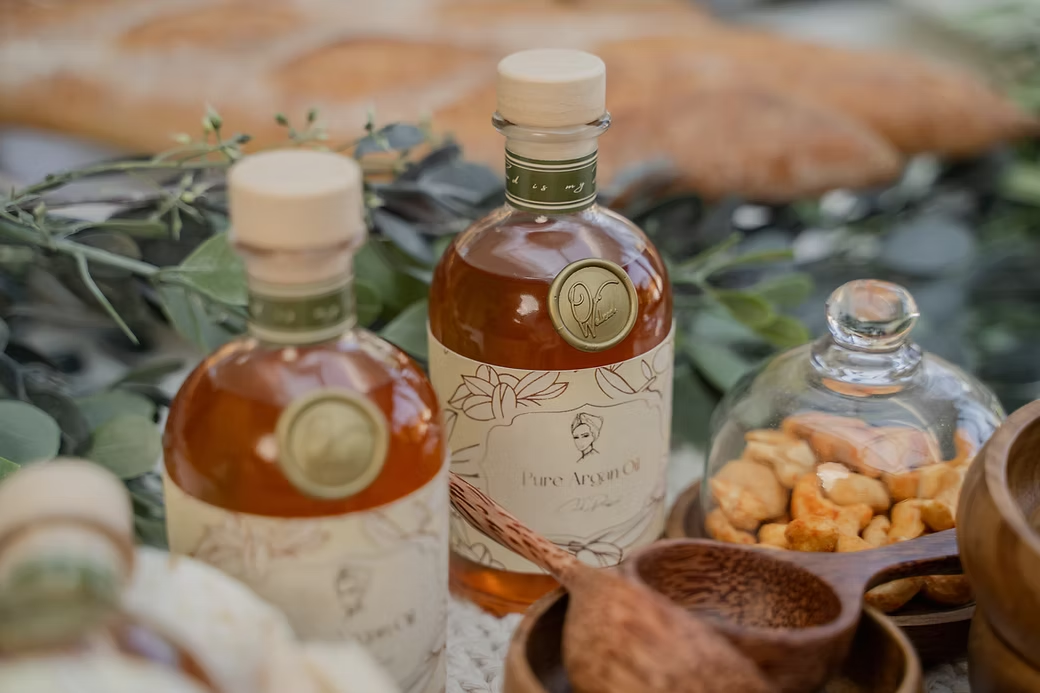
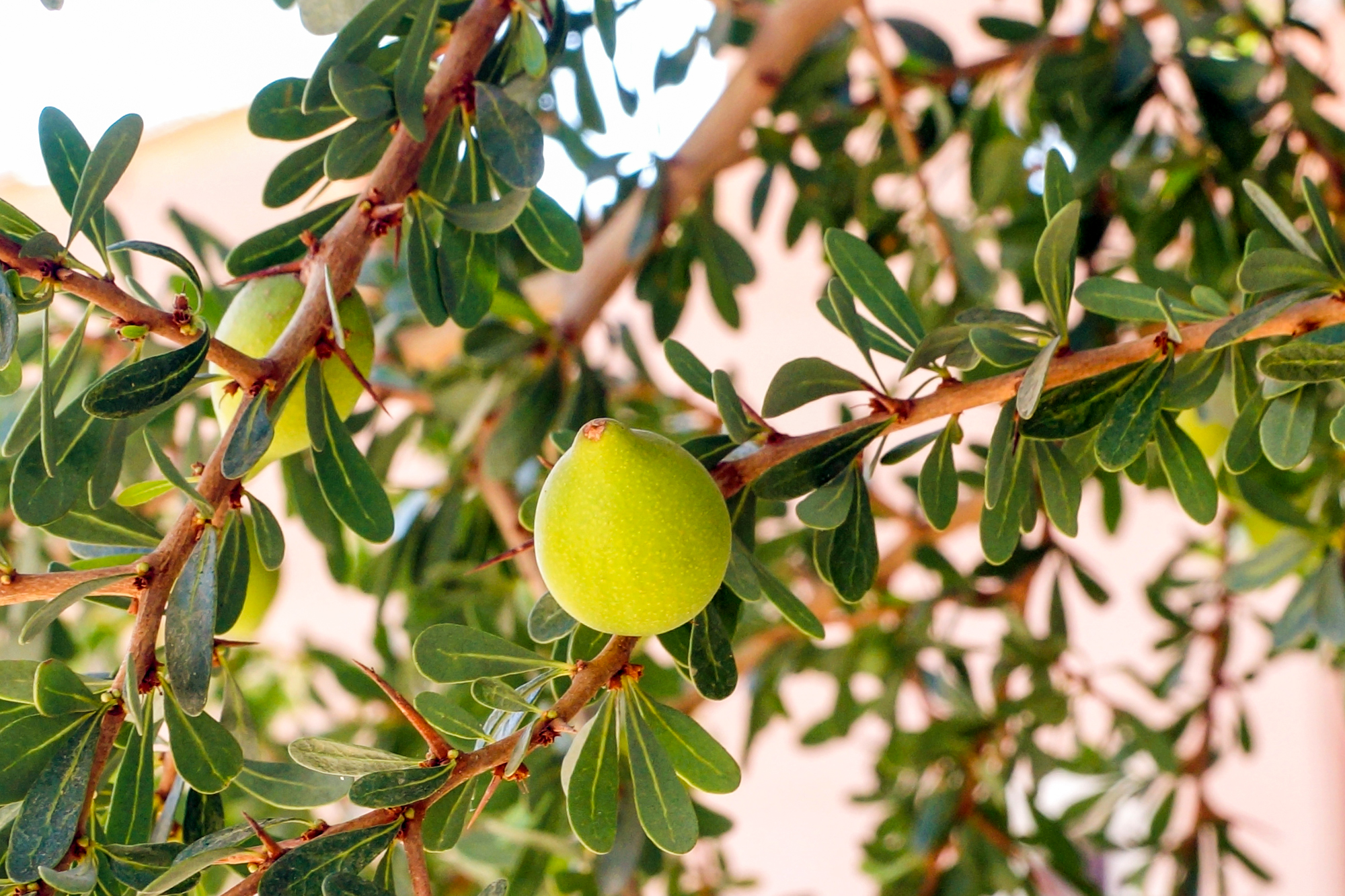
Culinary Argan oil is made from the roasted kernels of the Argan tree (Argania spinosa), a species native to the UNESCO-protected Arganeraie Biosphere Reserve near Essaouira and Agadir.
This rare oil is:
• Rich in flavor, with a toasted, nutty profile
• Cold-pressed by hand, often by women’s cooperatives
• Packed with health benefits, including Vitamin E, antioxidants, and heart-healthy fats
It is not the same as cosmetic Argan oil. Only edible Argan oil is made from roasted kernels, giving it its signature taste and aroma.
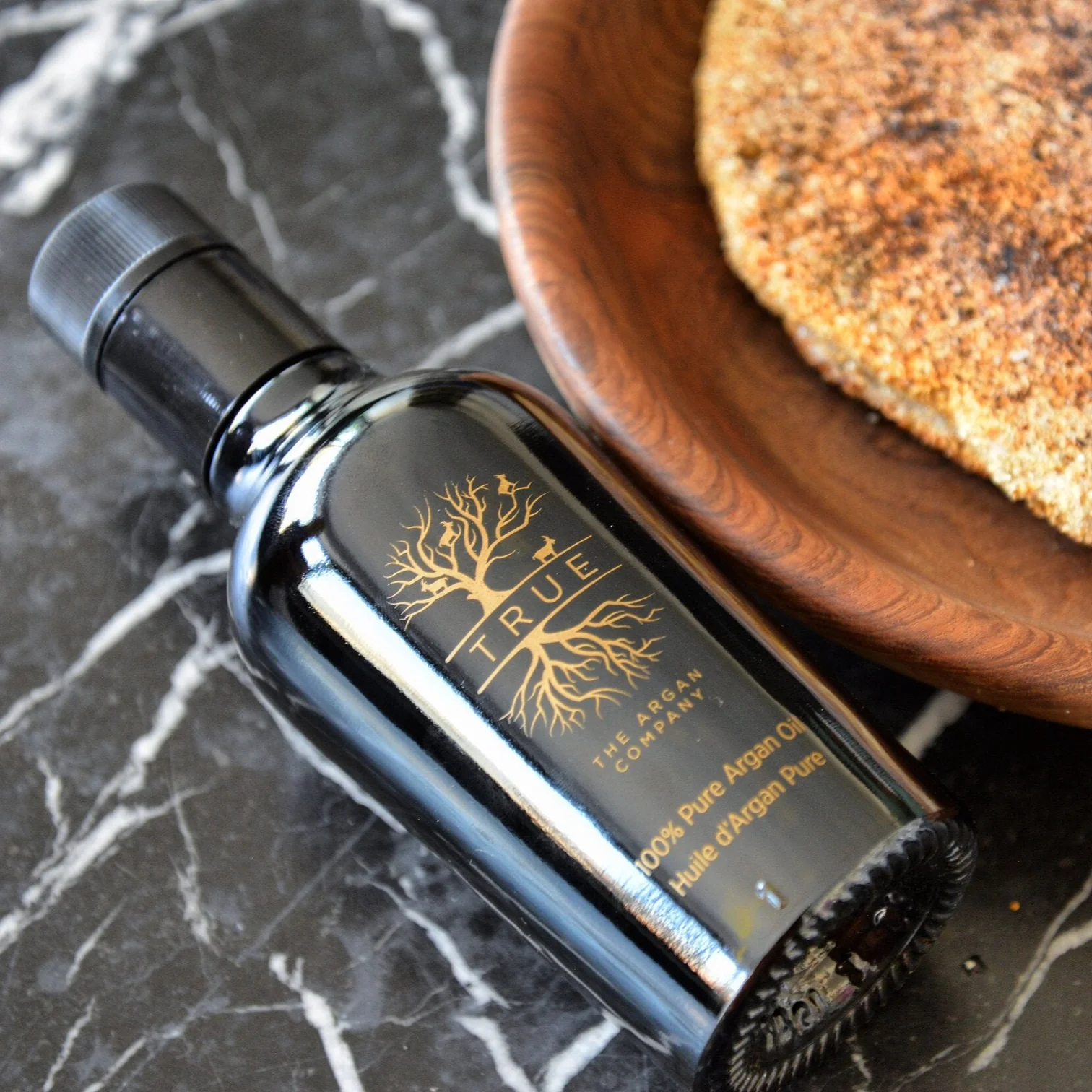
1. Amlou - Morocco’s Nutella
Often served at breakfast or tea time, Amlou is a luxurious spread made from Argan oil, almonds, and honey. Smooth, rich, and naturally sweet, it's a favorite among luxury riads and boutique hotels.
How to enjoy it: Spread on warm Moroccan bread with a pot of mint tea.
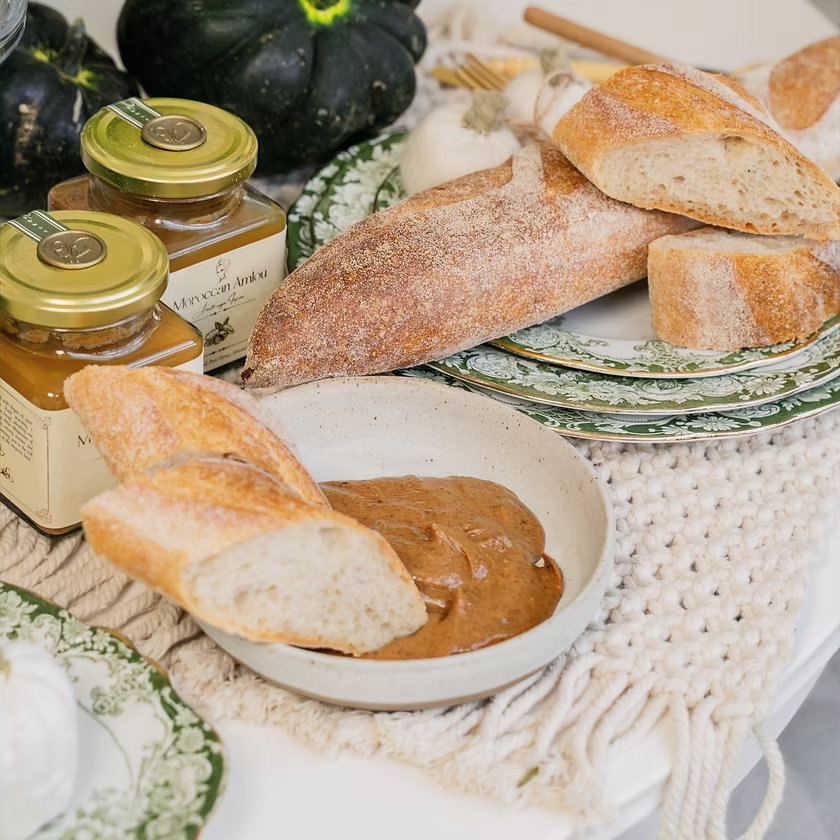
2. Salads & Vegetable Dishes
Culinary Argan oil is often drizzled over roasted vegetables, cooked carrots, or Zaalouk (eggplant and tomato salad). It adds a deep, roasted note that elevates simple dishes into something special.
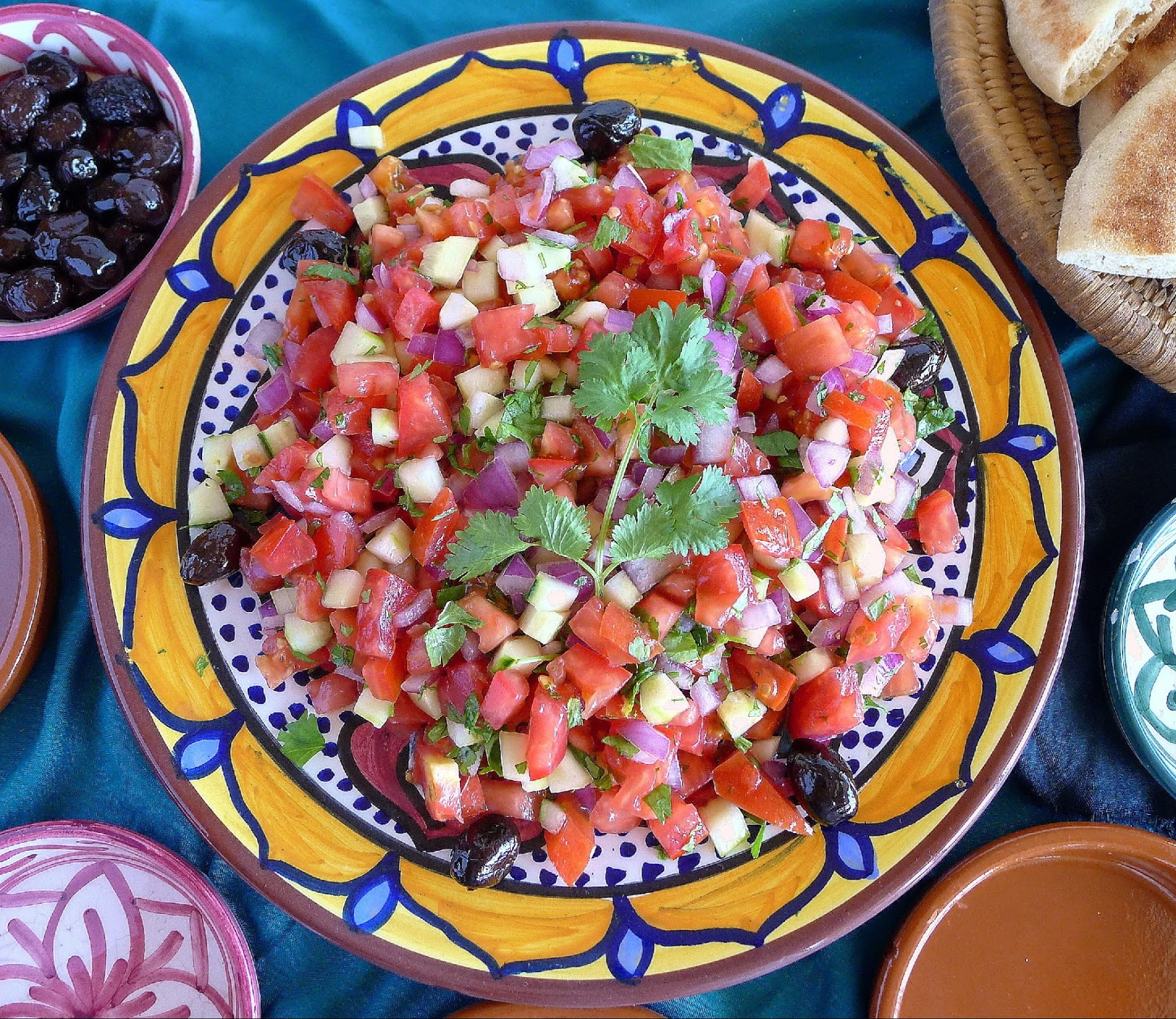
• Tagine - Slow-cooked meat or fish with spices, vegetables, and fruit
• Couscous - Steamed semolina with vegetables, chickpeas, lamb or chicken
• Pastilla - Sweet and savory pie with pigeon or chicken, almonds, and cinnamon
• Harira - Traditional soup of lentils, tomatoes, chickpeas, and lamb
• Zaalouk - Smoky eggplant and tomato salad
• Briouat - Phyllo pastry stuffed with cheese, meat, or seafood.
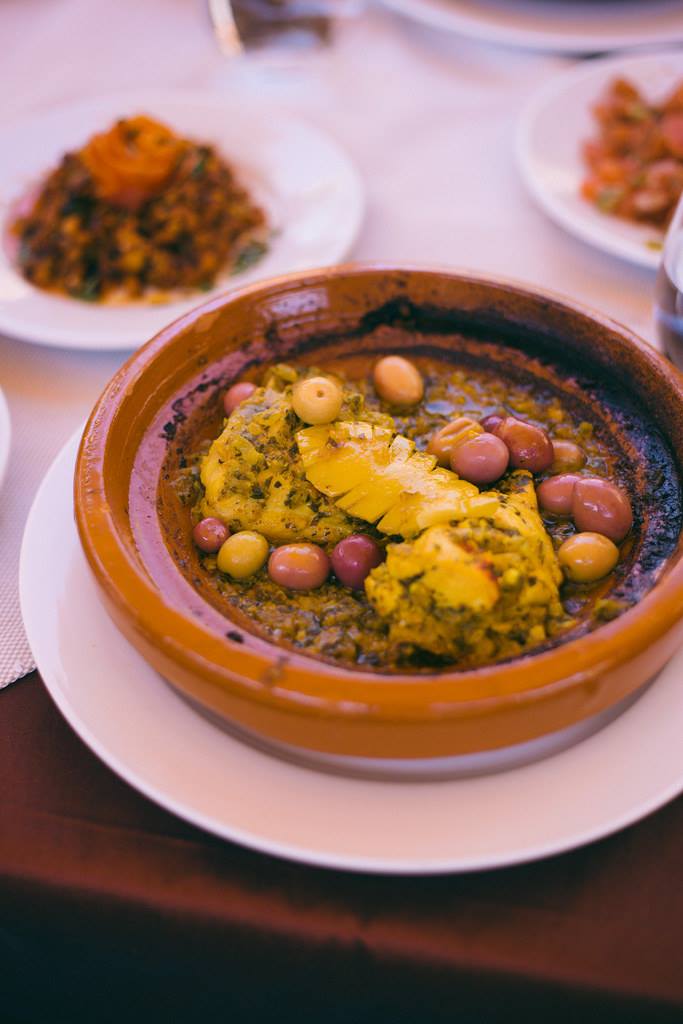
In Essaouira
Home to some of the best organic Argan oil cooperatives, Essaouira offers tasting experiences and private culinary workshops where visitors can learn how to make Amlou, press their own oil, and sample dishes that highlight its flavour.
In Cooking Classes
Luxury hotels like Royal Mansour Marrakech and La Maison Arabe offer gourmet cooking classes where Argan oil is a star ingredient. You’ll learn how to use it like a local, with precision, care, and creativity.
In Fine Dining Restaurants
Top chefs in Marrakech, Casablanca, and Fes are incorporating Argan oil into modern Moroccan gastronomy, fusing tradition with innovation.
Expect to see it used in:
• Amuse-bouches with fig and goat cheese
• Glazes for lamb or duck
• Argan oil vinaigrettes with citrus and fennel
Let us create the perfect itinerary with experiences tailored to your dreams.
DESIGN TOUR